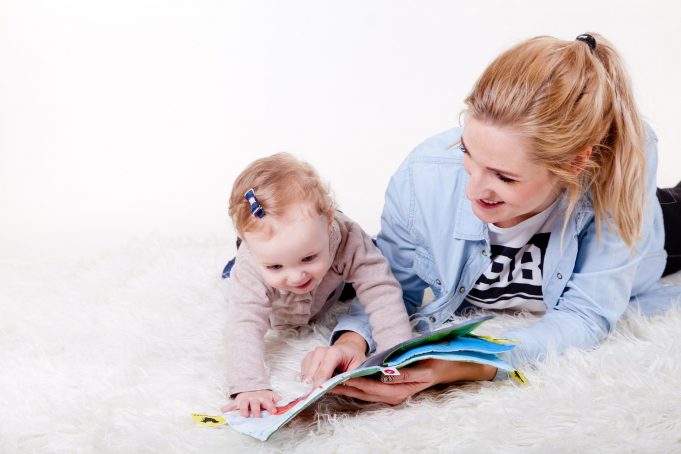Nostalgia is hot right now. Whether we’re indulging in our favourite classic TV shows and movies over lockdown, like Friends and Mean Girls, or using our alone time to have our own Sophie Ellis-Bextor-inspired kitchen discos, we’re loving nostalgia.
It’s not surprising, considering it is a comforting experience. We get that instantly recognisable warm, fuzzy feeling as we relive our favourite moments or bask in media that reminds us of happy childhoods. Sometimes it’s tinged with sadness as we miss the days gone by, but it’s generally a comforting emotion. It’s even proven to positively impact our mental health, reducing symptoms of stress, anxiety and depression.
Why do we love childhood nostalgia?
Who doesn’t have fond memories of their favourite books, films, or TV shows from their childhood? If you’ve ever envisaged what you would do if you had Bernard’s watch, the shenanigans you’d get up to with the BFG, or marrying Prince Charming, you’re not alone. In these trying times, indulging in nostalgia is a sure-fire way to cheer ourselves up.
Books in particular are a wonderful way to relive our childhoods. Often, our parents would read books to us at bedtime (sometimes earlier if we were well-behaved), so those books remind us of that precious time spent together. What’s more, many of our parents read us their favourite books from their childhood, resulting in fond feelings of nostalgia for them, too. This shared experience is a fantastic way for parents to bond with their children.
This World Book Day is all about sharing classic stories with your children in lockdown, so we explore one book that has truly stood the test of time: The Tale of Peter Rabbit. This book is in a relatively unique position of invoking nostalgia not only for ourselves, but also for our parents and even grandparents.
With over 45 million copies sold worldwide as of early 2020, it’s a book that has remained popular for over 100 years. Released in 1902, the story of the mischievous rabbit has spanned many generations and is often handed down from parents to children over the years. Now, Peter Rabbit is being immortalised in a brand-new line by quintessentially British retailer Cath Kidston.
Why is Peter Rabbit so enduring?
The story of a playful rabbit having adventures with his friends, but also spreading wisdom, is ubiquitous. We all know and cherish the story. Not only does an anthropomorphic rabbit perfectly capture the whimsy and imagination of childhood, but this bunny is also relatable. What child hasn’t been given a sober warning from their parents only to disregard it immediately?
The Tale of Peter Rabbit also focuses on him living his childhood through curiosity and outdoor play. He’s the ultimate relatable character because his curiosity gets the better of him. Our children are naturally inquisitive and can see themselves in Peter.
Thanks to his long-standing popularity, Peter Rabbit and his infamous blue jacket are instantly recognisable. The beautiful watercolour pictures accompanying the story help you bring the tale to life for your children, as well as invoking that lovely warm nostalgia. And, as one of the oldest licensed characters, Peter Rabbit’s popularity goes far beyond the original classic. Most recently, Peter Rabbit has been immortalised in an animated feature film, while he has also featured on stage and at Flamingo Land. Thanks to Beatrix Potter’s commercial mind, Peter Rabbit is also available in many forms of merchandise including toys, nightwear, collectable pottery, and even playing cards!
Bond with your children through The Tale of Peter Rabbit
There’s no denying that reading to your children is a bonding experience. What young child doesn’t look forward to being read a bedtime story, or even storytime during the day? The bonding experience goes even further when you share the stories you loved from your childhood. Chances are that stories like Peter Rabbit helped you bond with your parents, because they’ll have remembered it from their childhood.
These experiences and stories also help you to build key skills and traits in your children, including emotional intelligence. By reading your children these stories and encouraging them to share how they feel about the characters or story, you can help build their emotional intelligence. In their later years, this will then give them the unrivalled feeling of nostalgia.
Nostalgia is a wonderful feeling that we can ignite ourselves. Not only does it support our mental health by reducing the symptoms of the most common disorders, but it also comforts us. Engaging in media that reminds us of our childhood is a sure-fire way to invoke nostalgia, and what better way to do that than to share it with your young ones? Indulge in this warm, fuzzy feeling while passing down a classic to your children that they, in turn, can pass onto theirs.
Sources
https://www.huffpost.com/entry/benefits-of-nostalgia_n_4031759










